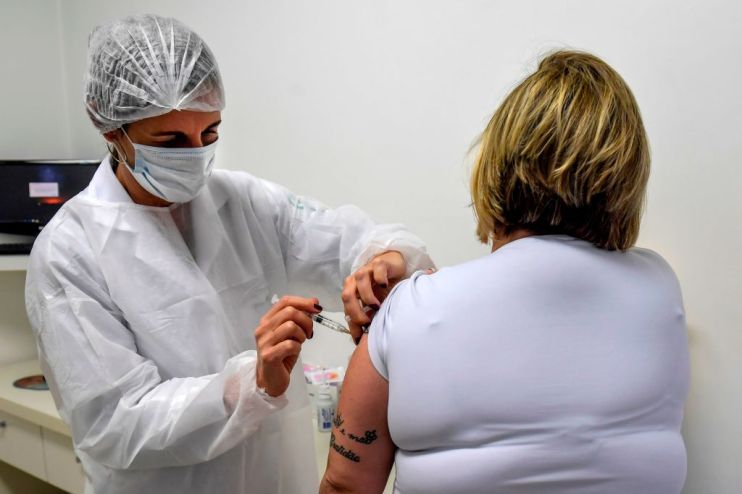Pfizer-Biontech coronavirus vaccine now 95 per cent effective

Pfizer and Biontech’s coronavirus vaccine has now proved 95 per cent effective and has met the safety criteria needed for emergency authorisation, the companies said today.
The two firms last week published preliminary data showing the vaccine offered 90 per cent protection against Covid-19.
But the jab has now met the same efficacy rate as Moderna’s vaccine, and both are expected to be approved before the end of the year.
“The study results mark an important step in this historic eight-month journey to bring forward a vaccine capable of helping to end this devastating pandemic,” said Pfizer chief executive Albert Bourla.
He added that the company has hit the required safety milestone for the vaccine and is now preparing data for submission.
The findings are based on two doses given to more than 41,000 people in trials across the globe. The drug was found to prevent 94 per cent of over-65s contracting coronavirus with “no serious safety concerns”.
Only two per cent of participants reported a headache, while and 3.7 per cent reported fatigue, the companies said.
The UK regulator, the Medicines and Healthcare products Regulatory Agency (MHRA), is poised to fast-track authorisation of the vaccine after the government ordered enough to vaccinate 20m people.
Health secretary Matt Hancock has said that the NHS will be ready to roll the vaccine out to the most vulnerable from 1 December if proven safe.
The government has spread its bets by ordering 355m doses of seven different coronavirus vaccines, with the hopes of returning the country to normality next year.
Kate Bingham, chair of the government’s Vaccine Taskforce, said the group was “pursuing a portfolio approach to obtaining vaccines for the UK across different vaccine formats, to maximise the chances of finding safe and effective vaccines.”
The UK’s top health officials last week set out the priority list for vaccination against coronavirus.
Professor Wei Shen Lim, chair of the committee, said the first phase of vaccine rollout would “prioritise the most vulnerable individuals in society, specifically people who are most likely to die from severe Covid-19 infection”.
Interim current recommendations place care home residents and care home workers at the top of the priority list, followed by older age groups from 80-plus-year-olds, going down to 60-plus-year-olds, Professor Lim said.
“Then adults with underlying health conditions, then 50-plus-year-olds, going down the age bands.”
Professor Lim added: “If phase one is completed then we will have protected hopefully over 99 per cent of those individuals who are at risk of dying from Covid-19.
“We have not decided yet on who else should be vaccinated beyond phase one. That’s not to say that they shouldn’t be vaccinated, but simply that we haven’t decided yet on prioritisation”.